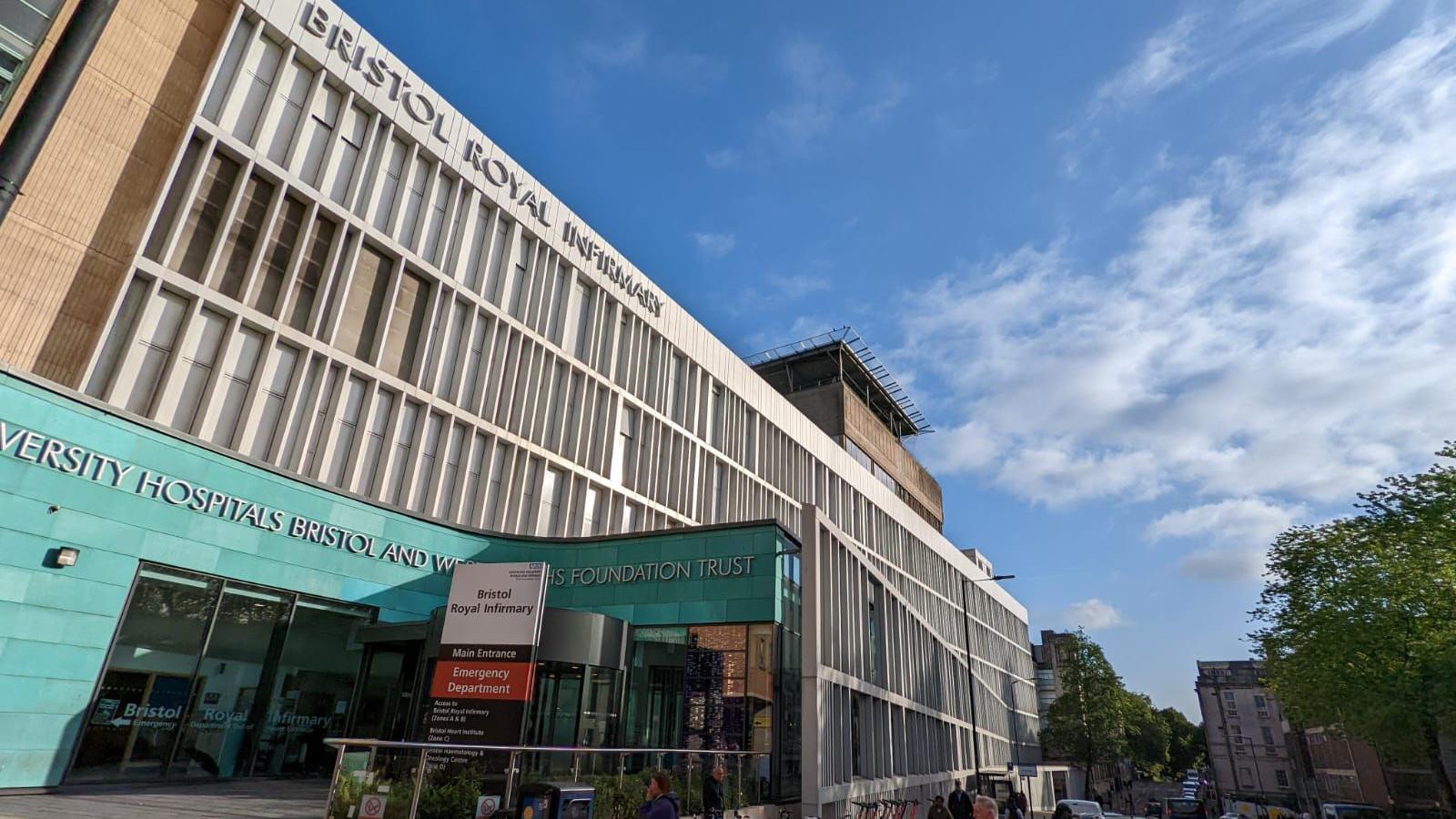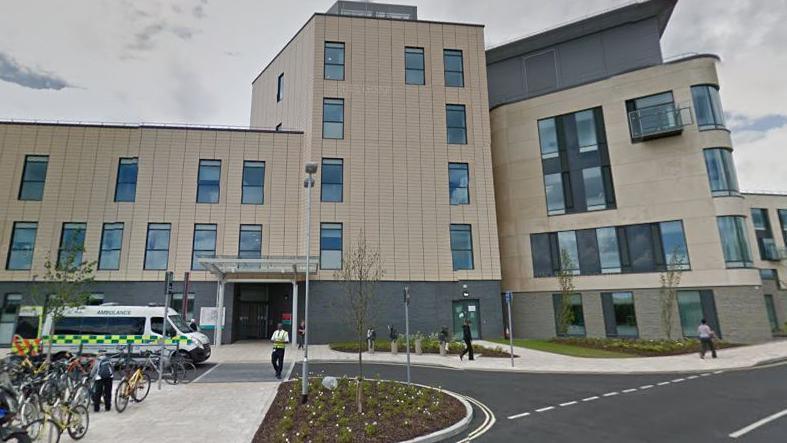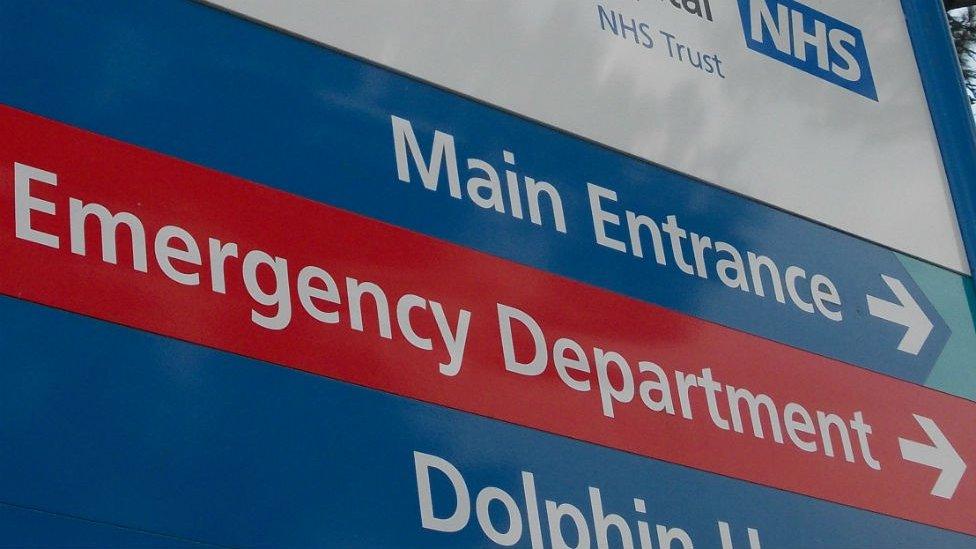Concern over Bristol 'bed-blocking' figures

Bristol City Council says it has recently moved some staff back to the BRI
- Published
Hundreds of patients staying in Bristol hospitals are not sick enough to be there, NHS data has shown.
In May there were between 350 and 400 patients being cared for in the Bristol, North Somerset and South Gloucestershire area who were well enough to leave.
The figures showed patients staying longer than three weeks after a discharge decision was made stayed in hospital for about 3,500 extra days.
Bristol City Council said it is planning to spend almost £4m this year on freeing up blocked beds.
The average cost to stay in a hospital bed is about £550 a day, the Local Democracy Reporting Service says.
NHS figures show that out of hundreds of patients well enough to leave, more than 50 were waiting on a bed in a care home to be available.
Some 41 people were waiting for a bed in a community hospital or similar setting, and 38 for an assessment for care at home.
Meanwhile 65 people needed confirmation that a referral had been received.
At a meeting on 1 July, councillors on the adult social care policy committee agreed to spend the government's discharge grant to tackle the problem.
Liberal Democrat councillor Jos Clark said: “People are sitting in beds waiting to go home for far too long.
“In my experience a lot of the reasons that people are sitting in a bed for weeks — not days or hours — is that it’s the discharge-to-assess, it’s the home care, and it’s waiting on council staff which is stopping people from coming out of hospital."
Discharge-to-assess means some patients will be discharged from hospital first, and be assessed once they’re back at home.
Ms Clark continued: “We all know that having somebody sitting in a bed for two or three days longer than they should, means that their ability to recover and bounce back is diminished greatly.”
The council says it has recently moved some of its staff back into Southmead Hospital and the BRI.
It said the grant money will go towards improving community re-enablement services and reducing the length of hospital stays and delays.
Another area will be investing in social workers to assess what care and support patients need after leaving hospital.
Hugh Evans, executive director of adults and communities at Bristol City Council, said: “Some of the main reasons that people end up staying are to do with simple things like take-home medications and awaiting for therapy assessments, and things like that.
“Ideally, and both of our acute hospital providers say this, discharge should start at or just before the moment of admission, we should be working on that right from the outset on that.
“But actually the reality is, under significant pressure which varies throughout the week and at different times of the year, that doesn’t always happen.”
Follow BBC Bristol on Facebook, external, X, external and Instagram, external. Send your story ideas to us on email or via WhatsApp on 0800 313 4630.
- Published30 May 2024

- Published11 June 2024

- Published5 January 2023
